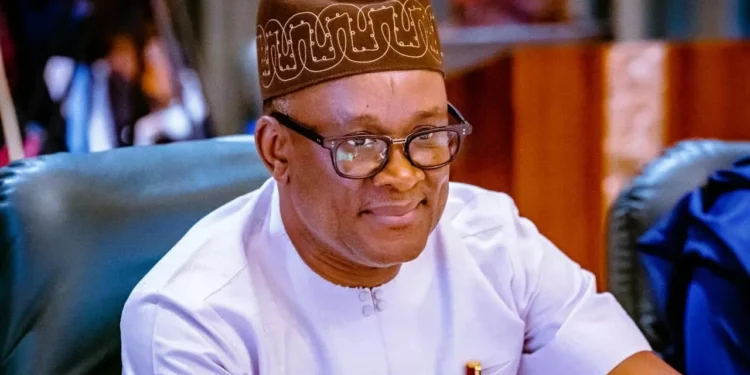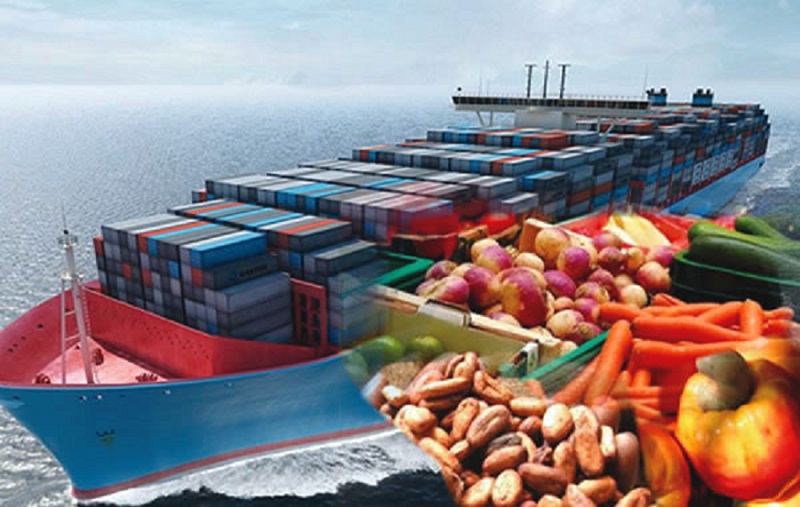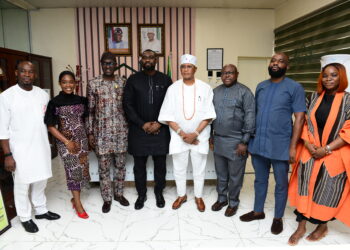The federal government of Nigeria is finalizing a comprehensive new Nigerian Industrial Policy aimed at reversing the country’s dependence on imported goods and strengthening its domestic manufacturing base.
The initiative, led by the Ministry of Trade in collaboration with the Manufacturers Association of Nigeria (MAN), is designed to increase the manufacturing sector’s contribution to GDP, which currently stands at less than 10%.
Speaking at the 2025 Nigerian Manufacturing & Equipment/Nigerian Raw Materials Expo in Lagos, Minister of State for Industry, John Owan Enoh, emphasized the government’s commitment to creating an enabling environment that prioritizes local production over raw material exports.
“At the moment, we’re working on coming up with the Nigerian Industrial Policy, which has been in the works for many years,” Enoh said. “We’re not just doing that as government alone; we have other stakeholders working with us.”
Policy Aligned with Tinubu’s Economic Agenda
The Minister explained that the new policy is a direct response to President Bola Tinubu’s Renewed Hope agenda, which seeks to accelerate economic diversification across key sectors.
“The policy tries to respond and speak to President Bola Tinubu’s agenda in terms of accelerating diversification in the various sectors and sub-sectors,” Enoh said. “It’s going to be one that is competitive enough with global industry trends.”
The policy is being co-developed with critical stakeholders, including MAN, to ensure it reflects the realities of Nigeria’s industrial landscape and global manufacturing shifts.
“We must produce, we must produce, and we must produce,” Enoh declared, underscoring the urgency of boosting domestic production.
The Minister revealed that the policy will target high-potential sub-sectors such as textiles, automotive manufacturing, agro-processing, and pharmaceuticals. These industries are seen as key drivers of job creation, value addition, and export diversification.
“I got exposed to machines and equipment that are developed in-country and that are enabling industry and manufacturing,” Enoh said after touring the expo. “It was a face-to-face encounter with Nigerian innovation and the spirit of enterprise.”
MAN Endorses Policy Direction
Segun Ajayi-Kadir, Director-General of the Manufacturers Association of Nigeria, expressed strong support for the initiative, describing it as essential for Nigeria’s industrial transformation.
“Creating the Nigerian Industrial Policy is one of the things that needs to be done by the government to boost the industrial sector,” Ajayi-Kadir said. “It must contain all that is needed for the country to industrialize.”
He also stressed the importance of a regulatory environment that supports growth rather than stifles it.
“Regulation should be used to support economic scale, not become a bottleneck to ease of doing business,” he added.
What You Should Know
- The New Nigerian Industrial Policy aims to increase manufacturing’s share of GDP and reduce reliance on imported goods.
- It is being co-developed by the government and key industry stakeholders, including MAN.
- The policy will focus on sectors with high growth potential, such as textiles, automotive, agro-processing, and pharmaceuticals.






















